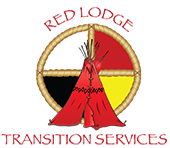Stay connected and updated on what we are doing and where we are going!
The Pow Wow Trail





Youth & Elder Camp

Red Lodge has attended the Youth & Elder Camp in the Mt. Hood National Forest for two years. We noticed that the amount of waste generated from this week-long camp was immense. So, we decided to do something about it.
Last year, it was estimated that only 10% of bottles and cans used were being recycled. This year, we built wooden bins to designate a spot to recycle. At meal times, our employees made announcements to encourage recycling rather than throwing everything in the trash. We say a 50% estimated return this year! 57 bags were collected, saving over 3000 bottles and cans from ending up in landfills.
We are dedicated to taking care of the land that provides and cares for us. Next year we hope to improve our numbers and recycle 70%! Creating a habit of recycling takes work, and we will do as much as we can to teach our youth to care for our Mother Earth.
South Dakota Land Restoration Project


This summer we had the opportunity to travel to South Dakota to learn about the practice of restoring and conserving traditional first foods and medicines. We travelled out to the small community of Green Grass located on the Cheyenne River Sioux Reservation. There we meet with elders who presented on the importance of our foods and having them in our everyday walks of life. These foods are so precious to us, even more so than us ourselves. They feed our spirit, they take care of us. In our traditions food is given proper respect and honor because without the foods there is no life. The elders taught us about each food, how to say it in the language, and how we can preserve them too, including how to harvest with ensuring the plants come back for next year! In Green Grass we planted over 300 trees and bushes including but not limited to red pine, red willow, chokecherry, prairie turnips, june berries, buffalo berries, and wild potatoes and onions.

Then we went to community of Takini and did the same thing. We met with an elder here who taught us how to preserve meat and berries in a dried form called wasna. Next, we went to Wounded Knee community on the Pine Ridge Reservation. Here the soil is more rocky and it is also drier here than in green grass. A “living soil ethnobotanist” explained to us this means we had to plant different variations of the same plants in order to be more suitable in this environment. This taught us about how important it is to get to know the soil, the earth, and how to work with it. We also spoke with elders who explained to us how pre-contact we didn’t have diseases like diabetes, and liver failure, etc.. our first foods kept us alive and healthy, so it is important to return to them, they are waiting for us, she said. Not only are they some of the most nutritious foods, but they also have spiritual meaning too. In total over 1000 plants and trees were planted across the 3 communities with about 25/30 people all working together. One thing that we really loved was to see how involved the youth and elders were and the sharing of knowledge, songs, language, and more. This was a really beautiful conference and we hope to bring this knowledge back here and help us to plan a series of classes as well as a camas (and other first foods) planting gathering. it is not just about growing food, but using our cultural teachings, medicines, planting, growing and harvesting of the foods to improve the health of our people and the land. We are the land!
Sakari Farms


We much appreciated the conversations and shared knowledge with our friends at Sakari farms as we have shared interests in local food sovereignty projects as they have been working with local communities as well as tribal to regain their first foods through the north west seed bank which they run right out of their farm.
We look forward to working with Sakari farms in future projects with the work we have beginning in the fall.
Celebrating Indigenous Peoples’ Day 2021
This video was made by Clackamas County on Zoom as a Land Acknowledgment on Indigenous Peoples’ Day in 2021
